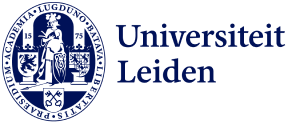About this minor
The development of smart cars, video games that adapt to your gaming behavior, law enforcement assigning your neighborhood a risk score, insurance rates determined by your behavior, finding your perfect match via an app: Artificial Intelligence (AI) is rapidly and radically transforming our interactions and the basic structure of our society. Our minor AI and Society provides you a basic understanding of AI and its applications in the world of today and tomorrow.
AI-tools are introduced within our infrastructure, work, communication, interpersonal relations, economy, democracy, health, science etcetera, to overcome limitations and/or increase efficiency, speed, reliability, convenience. Given the impacts across society, AI requires broad action and reflection on its embedding in society. This in turns requires broader knowledge and understanding of what AI is, how it fundamentally impacts our society and how it can (should) be developed, implemented and used responsibly.
Artificial Intelligence (AI) is rapidly and radically transforming our interactions and the basic structure of our society. Within our infrastructure, work, communication, interpersonal relations, economy, democracy, health, science etc, AI-tools are introduced to overcome limitations and/or increase efficiency, speed, reliability, convenience. AI helps us to understand complex and vast amounts of data in many different areas, such as human speech recognition, automatic translation between natural languages, legal documents interpretation, stock markets prediction, human behavior regulation, and drug discovery. It transforms the way we evaluate concepts like safety, knowledge, skill, connection, value, performance, justice, crime, responsibility, friendship, love – what it means to be human. Given the impacts across society, in other words: as “the new system technology” (according to the Dutch Council for Government Policy WRR report “Mission AI”, 2021), AI requires broad action and reflection on its embedding in society. This in turns requires broader knowledge and understanding of what AI is, how it fundamentally impacts our society and how it can (should) be developed, implemented and used responsibly.
Leiden University hosts a broad range of experts on different aspects of AI and its role in Society, and they join forces in creating such broader knowledge and understanding for students in the Minor AI and Society. The minor aims to host students from across all bachelors the university offers. It invites them to explore the perspective their discipline casts on the development and embedding of AI in Society, as well as to develop an understanding of other perspectives. In the interactive parts of the program students will practice with the challenges in integrating the different perspectives towards responsible and trustworthy applications of AI in society.
The minor AI and Society is an initiative and collaboration of the Leiden University SAILS network and will feature teachers from the Faculty of Law, LIACS, the Faculty of Governance and Global Affairs, and the Faculty of Humanities.
Programme overview
The minor Artificial Intelligence and Society (AI and Society) is an interdisciplinary minor program aimed at providing students of all disciplines a basic understanding of:
- the characteristics of AI as a major technological innovation
- why and how AI leads to fundamental transformation of our society
- how to identify the risks and benefits of AI in different areas of society
- how to contribute to the responsible development and use of AI
It also explicitly aims to foster interdisciplinary understanding in interactive elements of the program, in particular the AI and Digital Skills “lab”. The minor AI and Society consists of 6 courses, each 5 ECTS, adding up to a total of 30 ECTS. The courses are listed below. The program starts with two courses outlining the fundamentals of AI (history, terminology, scope, concepts, ethical implications): Fundamentals of AI and Philosphy, Ethics and Politics of AI. The following courses offer different perspectives on societal implications of AI: Governance of AI focuses on the embedding of AI in organizations and public institutions, Privacy and Data Protection on the regulation of AI development and impact via the European data protection law, and Human Robot Interaction on the dynamic ways in which humans and machines can collaborate - and what that means for society. Finally, AI and Digital Skills is a practicum-style course where students will work in interdisciplinary teams to experience the development- and evaluation cycle of a simple AI tool.
Good to know
Given the didactical design of this interdisciplinary minor, class attendance is required. Courses that are both part of the minor AI and Society and the minor Internetrecht only count towards one minor certificate.
Additional information
- CreditsECTS 30
- Levelbachelor
- Selection minorNo
